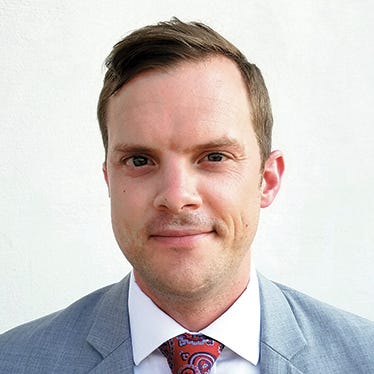CFP Board Drops Self-Disclosure, Forms Enforcement Task ForceCFP Board Drops Self-Disclosure, Forms Enforcement Task Force
"We agree with the need to strengthen the enforcement program," said CFP Board CEO Kevin Keller on Tuesday, responding to a Wall Street Journal report that found thousands of CFP designation holders had customer disputes or criminal charges on their regulatory records.

It’s no longer enough for Certified Financial Planners to self-disclose incidents that may preclude them from receiving CFP membership credentials or at least disclosing the regulatory marks on the board's consumer-facing website meant to vet "qualified" advisors for the public, said the CFP’s Board of Directors in a call with reporters.
The CFP Board is also creating a new independent task force led by securities consultant and former Texas Securities Commissioner Denise Voigt Crawford, which will provide “actionable recommendations for an update to its enforcement” rules and procedures, said Susan John, chair of the CFP Board's board of directors. The moves come in response to a Wall Street Journal article that unearthed instances of thousands of CFPs who had failed to disclose customer, criminal or regulatory incidents to the board.
In the wake of the revelations, the board is shoring up its enforcement process with cross-references to FINRA’s BrokerCheck and the SEC’s IAPD database, upon renewal of a member’s CFP credentials. That will mean around 3,500 CFPs every month will be checked against regulatory databases as the organization steps up its efforts to keep criminals and other wrongdoers from sullying its ranks.
It's unclear how the CFP Board will handle the thousands of advisors found by The Wall Street Journal to have regulatory marks not disclosed to the CFP. Among those are unverified customer complaints, the newspaper reported. CFP Board head Kevin Keller said it's not the board's policy to disclose allegations without findings of wrongdoing.
“We really have a fairly robust process, reviewing people's past activities when they first become certified, but we've been relying on self-disclosure,” said John, when those designation holders come up for renewal. “We really believe that most people are honorable [and] want to do the right thing by their clients, but clearly it's time for us to do something else.”
The new review procedures will take more resources, “whether that’s software or people,” added John. The process is currently a manual one, noted Keller.
In a meeting with regulators in the “near future,” the board will be exploring a more automated way of scanning individuals’ backgrounds, said Keller, which could involve data feeds from public databases maintained by regulators.
Crawford’s task force will be in charge of evaluating how criminal charges, criminal convictions or allegations will be published, if at all, by the CFP Board, said Leo Rydzewski, general counsel for the board. Those recommendations, along with others intended to “modernize its enforcement practices” are meant to be shared with the public, said John. “We do plan to make the recommendations public, in their entirety, and indicate which ones we will be implementing, and a timeline for doing so when we have that information.”
The board is hoping to receive the first set of recommendations on an expedited basis in time for the November board meeting, she added. In the event that the board decides to reject a recommendation, it will provide a reason for its decision.
The changes come as the CFP Board is finalizing its new Code of Ethics and Standards of Conduct, planned to go into effect Oct. 1 of this year. The board has completed its procedural rules and is in the process of updating its sanction guidelines, said John.







